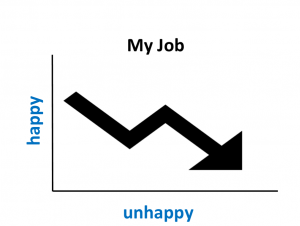
As technology advances and the world change; one thing that won’t is the fact that you will always have a boss.
We spend more time at work than we do with the ones we love. With that in mind, we will always have some level of interactions with a boss.
This post will help you identify ways to deal with a bad boss.
How To Deal With Bad Bosses
There are two types of bosses; good and bad. Good bosses empower you to succeed and help you thrive in the work environment. Good bosses are able to acknowledge and appreciate you for your hard work and dedication. On the other hand, bad bosses often have a negative impact on your attitude and how you view your job. Bad bosses have many characteristics, but they all revolve around how they behave.
Here are six types of bad bosses that you may encounter. It is important to identify the type of boss you work with.
- The Absent Boss – Good supervision involves adequate interactions or meetings with your boss. Although meetings may not occur regularly, it is important to have some type of formal meetings or communications with your boss. Good bosses make it a practice to pay attention to and know their employees. However, bad bosses do the opposite and fail to pay any attention to their employees. Employees who work for this type of boss report that they are ignored or not valued. The role of the boss is to be informed and help guide the work performed by their employees. The only exception to having little contact with your boss is if you are told that your performance warrants little supervision or the ability to work autonomously.
- The Power Struggle Boss – Each boss has some form of responsibility and delegated (due to position) authority. However, some bosses let this power and authority get the best of them. This looks like the boss who orders everyone around while reminding you that they are in charge. This type of boss is often not willing to listen or value your input. This type of boss may also resort to belittling you in public or private. An easy way to measure the impact of a power struggle is to identify how you feel after communicating with your boss. If you feel bad, there is most likely a problem.
- The No-Trust Boss – Healthy relationships between a boss and employee usually includes trust. Naturally, it takes time to build trust between you and your boss. However, it can be a problem if his/her actions cause you to not trust them. It is hard to earn trust but easy to lose it with others. A good measure to evaluate trust is to assess the situation to understand if your boss is mistake prone (weakness of the boss), or has habitual (multiple broken promises, lies, or intentional hurt/harm) behaviors that cause a lack of trust. Bear in mind that not everyone is perfect and can make mistakes. However, it is important to consider your bosses intent when assessing their behaviors.
- The Micromanager – Some bosses have problems allowing employees to perform their jobs. Usually, due to an inability to trust and truly delegate; they default to micromanaging most everything you do. It is important to note; your boss may be under specific direction from his/her supervisor and is forced to micromanage certain projects. This may be the cause of occasional or project specific micromanagement. However, if everything you do is micromanaged, this is a sign of a problem. Sometimes bosses use micromanagement as a passive way of making you uncomfortable enough to move on to a new position. It is important to take an honest self-assessment to see if the micromanagement is due to his/her stresses or a problem with your performance. Sometimes a problem with your performance can cause your boss to micromanage you.
- The Passive Boss – Some bosses are not good at dealing with conflict or addressing problems. This inability leads to them being perceived as passive. Passive bosses take too much time to make decisions. They also choose to empower you to deal with problems vs. taking them on themselves. Working for this type of boss can be extremely exhausting, as you’re waiting for support that may never come from them. Their inability to help often causes employees to reach burnout quicker than usual.
- The Perfectionist – Some bosses expect for every job output to be perfect. It becomes a big problem if you make a mistake because they feel this is a negative reflection on them. The perfectionist creates a culture where people are afraid to make mistakes. Employees in this situation often begin to overthink and doubt their abilities. The reality is that no one can be perfect. However, the perfectionist has not come to this revelation.
Although the list above is not all-inclusive, it is an indicator of having a bad boss.
Being able to identify a bad boss is half of the issue. If you are dealing with a bad boss, remember that you can take control of the situation. In the near future, we will write an article to provide some strategies on how to deal with bad bosses.
You Might Also Interested In: Unhappy At work
To keep this topic going, feel free to send us an email at admin@yourcareerdoctor.com to provide us with questions and examples of bad bosses. We may feature a few short stories in an upcoming blog post.
Good luck if you are dealing with a bad boss!
Take care,
Dr. Derrick E. Haynes — YourCareerDoctor
Looking for a Job? Visit the Best Job Search Engine Around!
Looking for a new job? Visit http://jobs.yourcareerdoctor.com to find your dream job! #jobseeker #iownmycareer. Do you need career coaching? Visit us at http://yourcareerdoctor.com for more information.
Find us on Social Media
- Facebook: https://www.facebook.com/yourcareerdoctor/
- Twitter: https://twitter.com/urcareerdoctor
- Main Website https://yourcareerdoctor.com

 ne who desires to see employees have
ne who desires to see employees have